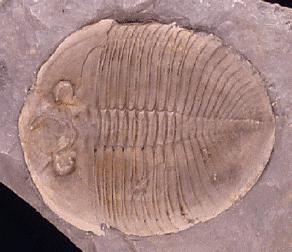|
There are five main reasons why the theory of macroevolution is not a satisfactory explanation for the origin of species:
- Virtually all genetic mutations are detrimental to organisms.
- Even if a beneficial mutation did occur from time to time, many complex structures of organisms (such as eyes, ears, lungs, and feet) would have required many intermediate forms, each of which would have required a beneficial mutation to a form that had previously been produced by a beneficial mutation. The probability of this happening to form one complex structure, let alone many, is virtually nil.
- Predictions based on the theory are inconsistent with the facts:
a. One would expect many transitional forms in the fossil record. However, as stated by the late Stephen Jay Gould, formerly a biologist at Harvard University, "The extreme rarity of transitional forms in the fossil record persists as the trade secret of paleontology."
b. One would expect the fossil record to show life forms coming into existence in a slow and gradual process over vast periods of time. However, the fossil record shows that virtually all the major body plans of the animals we know today arrived fairly simultaneously in terms of geologic time (the "Cambrian explosion").
c. One would expect to find many useless features on organisms, i.e., features that serve no purpose -- they are simply random features that are neither good nor bad. For example, since teeth are supposedly the result of random, chance processes, one would expect to find them elsewhere on our bodies, not just in our mouths.
If the response is that teeth that were formed elsewhere were weeded out through natural selection because they "sapped the resources" of the organism, then it is even more difficult to explain the formation of complex structures. Intermediate forms of such structures almost always would have served no purpose, and thus would have been weeded out before the final complex structure came into existence.
d. One would expect to find features arranged more haphazardly. For example, one would expect to find teeth arranged in our mouths in a haphazard way, rather than in semicircles. An archaeologist looks upon a circle of stones and concludes it is not the result of random, chance processes. Why doesn't a biologist look at a semicircle of teeth and reach the same conclusion?
- The theory is grounded in philosophical materialism and cannot account for such entities as sounds, pains, and thoughts. Most evolutionary biologists either ignore the problem, deny the reality of such entities, or simply assert that somehow atoms and molecules "give rise" to such entities.
- The theory, which is built on the assumption that knowledge is possible, teaches that the brain is the result of random, chance processes. This, however, leads one to doubt whatever the brain might lead one to believe, and thus to doubt that knowledge is possible, the very assumption upon which the theory is based. Thus, the theory results in a reductio ad absurdum.
A Chinese paleontologist recently stated, "In China, we can criticize Darwin but not the government; in America, you can criticize the government but not Darwin." It is time for this to change.
|




|
The result of
random, chance processes? |
|



